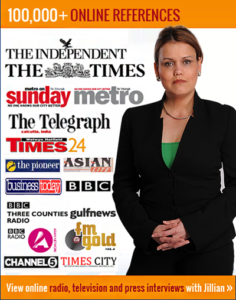Nonprofit Testimonials: The 2 Mountain-Moving Kinds You Want Most and How to Get Them
Testimonials have been used in marketing for over a hundred years. Their value in bringing prospects from considering something to deciding to do it is unquestioned. Nonprofit testimonials have the same power, but far too many nonprofits are under-utilizing this game-changing persuasive tool.
Marketing guru Bill Glazer singles out the two most powerful types of testimonials in his book, Outrageous Advertising.
Each has the ability to make the case for your nonprofit in a way that you could not make as well on your own. Why is that? Because if you say it, your motives are obvious. But if another person says it, they have nothing to gain. This is why testimonials have such credibility and power.
Here are the two types of powerfully persuasive testimonials you want:
- Outcome-based Testimonials
- Testimonials that Overcome an Objection
Let’s define each type and then look at how to get these most valuable testimonials from those who benefit from your nonprofit, as well as donors, volunteers, and others.
Outcome-Based Nonprofit Testimonials
An ‘outcome’ is an end result. When I took this action, I got this result. Outcomes are persuasive, because people are skeptical about whether things work as promised.
For nonprofits, what is it that needs to work? When it comes to fundraising, the outcome is the proof that your program achieves the results you say it does.
Here are some made-up examples of how an outcome-based nonprofit testimonial might sound:
- I was able to go to school this year for the first time ever
- I got to see a medical specialist for my complicated pregnancy that I never could have afforded without Nonprofit Name’s help
- I was able to launch my business using the $7500 microloan awarded to me by Nonprofit Name
Do you see the focus on the outcome in each of these? Compare those to something like, “Nonprofit Name made such a big difference in my life,” or, “Nonprofit Name is such a great presence in this community and I’m thrilled to support them.”
There’s no outcome with those kinds of generic testimonials. And in fact, those are the type more likely to be suspected as being made up. The more specific, the more genuine. The way police detectives sniff out liars is by getting them to describe the details. That’s where witnesses’ stories always fall apart if they’re not being truthful.
Specificity is credible. Specificity of outcome is powerfully persuasive.
Nonprofit Testimonials that Overcome Objections
A big part of sales is about overcoming objections. It’s too expensive. I don’t have time. Let me talk to my spouse. Do we really need this? These are all objections that stand in the way of a sale.
Fundraising is no different. All that’s different is the objections themselves. But you still have to overcome them.
A few common objections that keep supporters from becoming donors:
- I don’t trust this nonprofit enough to give
- My money won’t make a difference. The problem is too big or unsolvable
- My money isn’t needed because they have huge donors giving way more than me
Now, if we were focusing this article on objections people have to attending a fundraising event or to volunteering, the objections would be different. But again, the task when collecting powerful nonprofit testimonials is the same. Get testimonials that overcome these objections.
What does a testimonial sound like that overcomes the three above objections?
First of all – I wouldn’t worry much about the first one. Some people are inherently suspicious of nonprofits, or ones from certain niches. You probably won’t overcome that with a testimonial because they’ll suspect it as being made up. This kind of person is not your target donor, because your mission probably just doesn’t matter that much to them. The same person who distrusts all veterans nonprofits because of a story they saw in the news might freely give to hungry kids. If you’re a veterans nonprofit, let them give to the kids, and move on.
Here’s a made-up one about a donation making a difference in spite of the problem seeming so big:
- All I needed to get free from my past was one good job, and the $45 fee to take the training course at the nonprofit is what made the difference
Notice again the specificity. But also, notice how it focuses on a single barrier – the $45 fee – and that because of the nonprofit (and therefore the donor), they were able to get past that barrier.
For fundraising, testimonials that boil the problem down to small, tangible, relatable sizes are what overcome the objection that ‘the problem is too big or unsolvable.’
 Likewise, here’s one that counters the objection that my small donation doesn’t matter:
Likewise, here’s one that counters the objection that my small donation doesn’t matter:
- The cards I received from donors who cared enough to write helped me want to keep fighting my cancer
Here, the specificity refers to their inner self. Emotions, motivations, confidence, state of mind.
Jillian Haslam, who leads a nonprofit out of the UK and is also an entrepreneur and motivational speaker (and client of ProActive Content), says in her book Indian.English. that “even the smallest act of kindness can change the world.”
That’s what these sorts of testimonials communicate. Small acts of kindness that mean the world to the person touched by them.
How to Get Oceans of Powerfully Persuasive Nonprofit Testimonials
It’s pretty simple really. To get testimonials in great quantity, you must ASK for them.
People will not just tell you how great a job you did. That takes initiative and gratitude, two things most people do not have in abundance. But if you ask – and if you ask at the right time – you can collect testimonials from all kinds of people.
But to get high quality testimonials of the two types you’ve just learned about, you must do more than just ask. You must ask smartly.
Asking smartly means 3 things:
- Ask at the right time
- Make it easy for the person you’re asking to comply
- Help them say it in one of the two ways you want
The Right Time to Ask

Great nonprofit testimonials require great timing
Image by PublicDomainPictures from Pixabay
This depends on the situation. For a volunteer, you’d want to ask after their volunteer experience is complete. For an event attendee, ask after the event. Those are pretty obvious. But don’t delay. Ask immediately after – while they’re still thinking about. Even a day later, and you won’t get as good a testimonial.
For a beneficiary of your nonprofit, when you ask depends on your mission and what you’re trying to do. For a disease awareness or hospital nonprofit, you’d want to ask when a person who was sick had a breakthrough or a good treatment experience.
For a legal aid nonprofit, ask them after their case has been resolved.
For animal nonprofits, ask the consumer who buys the rescued animal, or the employee who cares for them. You could try asking the animals, but that might prove frustrating…
Hopefully, you’re seeing the pattern enough to apply it to your nonprofit. Ask for testimonials as close as you can to the moment after the beneficiary has been served by your nonprofit. Ask them when they are at their most grateful, most hopeful, most optimistic.
Make It Easy to Give Testimonials about your Nonprofit
For this, the key is to have pre-written sheets of paper and something to write with. Or, have a recording device for video or audio, if appropriate.
Paper is best because then you can also pre-write the question prompts. If you do video or audio, the person recording, or another staff person nearby should ask pre-planned questions. Do not just ask the speaker to ‘wing it.’ You will not get the high-quality testimonials you seek.
And, VERY important: Include on the sheet a place to sign their name and give approval for the use of their comments. If you do video or audio, you will still want them to sign their permission to use their comments. So you need paper either way.
Help Them State Their Testimonial in One of the Two Desired Formats
Here are five question prompts to give you an idea of how to do this:
- What were you able to do that you otherwise could not have done through help from [org name]?
- Describe how you felt when you got the help you needed
- What stood in your way, and how did [org name] help you break through that barrier?
- Compare your life before you got help from [org name] with your life after.
- Complete this sentence: “When I came to [org name], all I needed was _____________”
Now, you wouldn’t use all five of these in one sitting. You’d probably want two, three at the most. And you might come up with others or need to rephrase these a bit.
But don’t be too hasty about that. Each of these is designed, carefully, to produce outcome-based nonprofit testimonials or testimonials that overcome objections.
#1 is outcome-based. It will produce an answer like “I was able to ____”, and it focuses on what they could not have otherwise done. #2 is also outcome-based, but on an emotional level. Emotions are just personal outcomes, but they matter a great deal for certain nonprofits in particular.
#3 is a difference-making question. It focuses on the barriers that stood in the way. The idea is to get some kind of response that shows that problems that seem unsolvable can actually be solved through your nonprofit, overcoming that common objection.
#4 will produce a before and after testimonial. My life was that way, now it’s this way.
And #5 is specifically designed to draw out a small-scale problem that was overcome by the nonprofit, overcoming the objection that my small donation doesn’t matter.
Feel free to come up with more question prompts, but stay focused on the two targets.
You want testimonials about the impact your nonprofit has on the lives of real people. You want them to talk about outcomes they experienced personally, or you want them to talk about small barriers that loomed large, and that your nonprofit was able to help them through.
Why?
Because when potential donors read these testimonials, they will believe your nonprofit is making a tangible, profound difference in the lives of real people. And that will make it easier for them to decide to donate.
Want more content? Get weekly nonprofit fundraising and copywriting tips, strategies, and motivations in the ProActive Insights newsletter.



